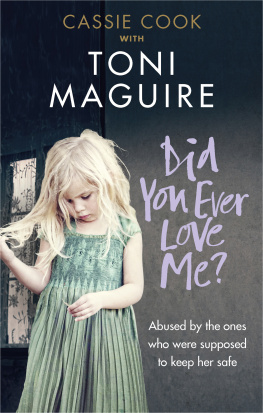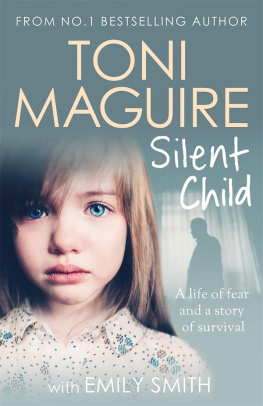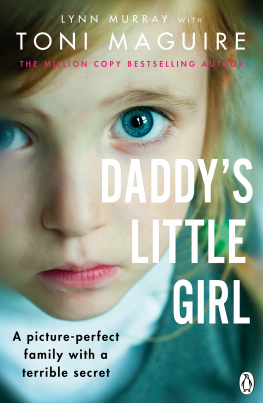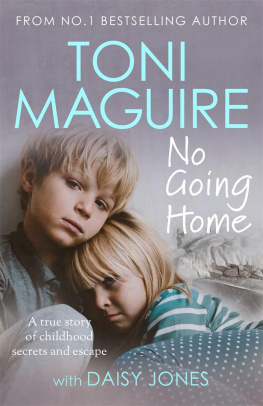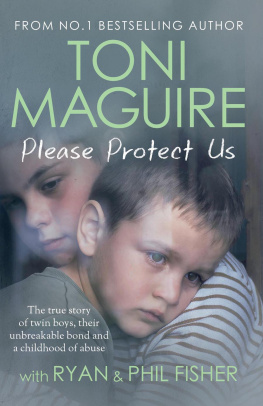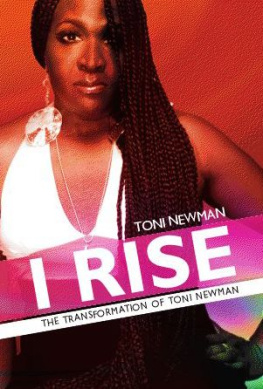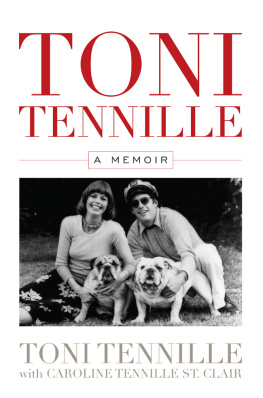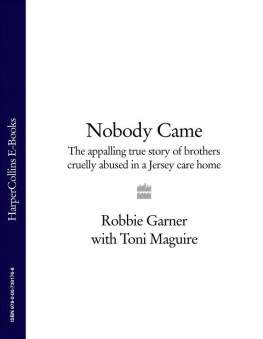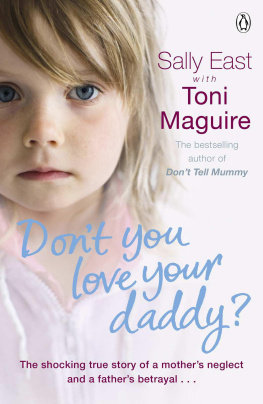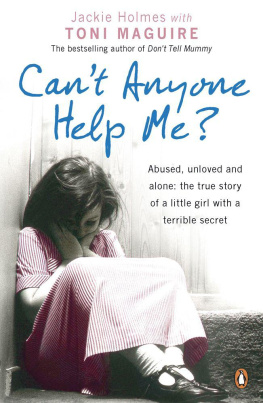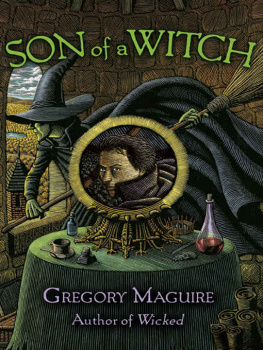Toni Maguire - Did You Ever Love Me?: Abused by the ones who were supposed to keep her safe
Here you can read online Toni Maguire - Did You Ever Love Me?: Abused by the ones who were supposed to keep her safe full text of the book (entire story) in english for free. Download pdf and epub, get meaning, cover and reviews about this ebook. year: 2018, publisher: Ebury Press, genre: Non-fiction / History. Description of the work, (preface) as well as reviews are available. Best literature library LitArk.com created for fans of good reading and offers a wide selection of genres:
Romance novel
Science fiction
Adventure
Detective
Science
History
Home and family
Prose
Art
Politics
Computer
Non-fiction
Religion
Business
Children
Humor
Choose a favorite category and find really read worthwhile books. Enjoy immersion in the world of imagination, feel the emotions of the characters or learn something new for yourself, make an fascinating discovery.
- Book:Did You Ever Love Me?: Abused by the ones who were supposed to keep her safe
- Author:
- Publisher:Ebury Press
- Genre:
- Year:2018
- Rating:4 / 5
- Favourites:Add to favourites
- Your mark:
- 80
- 1
- 2
- 3
- 4
- 5
Did You Ever Love Me?: Abused by the ones who were supposed to keep her safe: summary, description and annotation
We offer to read an annotation, description, summary or preface (depends on what the author of the book "Did You Ever Love Me?: Abused by the ones who were supposed to keep her safe" wrote himself). If you haven't found the necessary information about the book — write in the comments, we will try to find it.
Did You Ever Love Me?: Abused by the ones who were supposed to keep her safe — read online for free the complete book (whole text) full work
Below is the text of the book, divided by pages. System saving the place of the last page read, allows you to conveniently read the book "Did You Ever Love Me?: Abused by the ones who were supposed to keep her safe" online for free, without having to search again every time where you left off. Put a bookmark, and you can go to the page where you finished reading at any time.
Font size:
Interval:
Bookmark:


Its what daddies do with their little girls, he explains, every little girl does it. But its a secret, and you must not talk about it.
Cassie was too young to remember when her father started abusing her, but she remembers how unclean it made her feel. When she got married at sixteen and had a family of her own, she thought shed finally escaped his clutches, but he found a way to make sure she could never move on. Turning to drink to cope, Cassies babies were taken into care and her husband left her. Now would begin the biggest challenge of her life: winning her children back and working to eclipse the pain of the past.
This is the heartbreaking true story of a little girl that just wanted to be loved.
Toni Maguire (Author)
Toni Maguire has published two bestselling books which covered her own story, Dont Tell Mummy and When Daddy Comes Home. Her success encouraged others who had kept their childhood secrets hidden to approach her and she has so far co-written five memoirs. Toni lives in the UK and has lived in Ireland.
Cassie Cook (Author)
Cassie is now a carer for the elderly, with a good relationship with her sons. Although she has had to accept that she will never have a physical relationship, she has found a way to move forward from the horrors of her past, and would call herself a happy woman.

I dedicate this book to all survivors you are not alone, there is a light.

Why, so many people ask, why dont children talk?
I could tell them by asking that question they must never have felt fear. Not the fear of a bad school report, or of not having the right dress to wear to a party, nor being late for an appointment. No, not that one; but the other, the one that sits heavily on our chests while we sleep, creeps into our dreams and slides down our throats, choking back any words asking for help that might have been on the tips of our tongues.
No, that emotion has never been their constant companion. For if it had, they would know that once held in its grip, we are in a place without mercy, where both reason and logical thinking cease to exist.
Ask the person with claustrophobia why they cannot enter a lift. Or the one with agoraphobia why their legs shake and their feet will not move to take them outside. They have very few answers because they understand their behaviour is irrational. But those demons that cause chests to tighten and breathing to become pants of terror pay scant attention to reason.
I grew up in the dark age of ignorance, two decades before organisations like Childline told us that just one phone call could make us safe. When I was a small child the thought of telling anyone in authority the truth simply did not enter my mind, or the minds of those who, like me, suffered in silence. We had no faith in adults, no trust whatsoever. For we were the awkward children, the grubby ones, the ones who stood alone in the playground, the ones whose homework was ill-done, the ones who were difficult to love. We seldom received a kind word from an authoritative figure, nor did we expect to. For we were all too aware it was us who were blamed for our parents neglect.
The well-watered seeds of suspicion, planted by those in charge, gradually became so firmly embedded in our minds that it was impossible to speak out to tell where those bruises came from, or that we often went to bed hungry. When our bad marks for class work were ridiculed and we heard the sniggers of our peers, we could not say that fear peppered our sleep with nightmares and deadened our concentration.
Was it likely then that we could have stood up and said Please, Miss, my mum and dad came home from the pub drunk and their rowing all night stopped me from sleeping or Please, Miss, my dad spent my mums housekeeping money at the dogs and there was no breakfast this morning. And those bruises on my legs Well, Miss, my dad took his belt to me when I told him I had to finish my homework. And my broken arm last year when I said I fell out of a tree that was my dad too. Thats why my homework never gets done. Those were never going to be sentences that the children of abuse could utter.
If we could not tell our teachers that, then how could we, with eyes cast down and cheeks stained red, whisper the words describing the very worst?
That we did not like the way Daddy crept into our rooms and touched us in the places we thought were private?
There was a time, just once, when I summoned up my courage and tried to ask for help. But that was a sad mistake, one I can still hardly bear to think about. For when I tried to tell, I had clearly said the unsayable. Instead of receiving help it was disdainful looks and harsh words that were thrown at me.
Because of the repercussions that followed that one time when I put my trust in an adult, I never tried again. For after that hadnt I been told what would happen, should I talk? Like tiny drops of poison entering my bloodstream so my parents whispered threats entered my mind, spiking it with anxiety and distrust.
No one will believe you.
They will say you are a dirty little girl making up those stories; something I had already learnt to be true.
When I entered my teens and thought my voice might be believed it was shame that silenced me. But not before I had tackled my father, who on hearing my threats mocked me.
Wasnt I the one who had taken part in those sordid deeds? he asked, a glimmer of malevolence in his eyes.
The one who had kept quiet all those years?
Who would believe I hadnt enjoyed it?
Nobody will love you if you talk, Cassie, he said. You will be the one shunned. You will lose everything.
And because I believed him, this prophesy eventually came true.
It was only later, when it was too late, that I realised maybe another life might have been possible.
And when those memories slide into my head they bring with them a question I need answered. It is the one that angers me still. Why? Why did no one ask?
All those teachers and those heads of schools that worked during the fifties, sixties, seventies and eighties, they saw the bruises, the neglect, the nervousness. Why did they never ask?
I remember looking at those adults See me, I prayed, see what is happening to me.
Cant you look at me? Why dont you ask me?
I could tell if you did.
But no one heard my silent pleas.
No one rescued me.

I am no longer young. But then neither am I lonely or unloved. Not now, not any more.
I love my job, working with the elderly. This is where they come to when they need the extra care that those outside can no longer give. This place is called a home. I like that word for that is what we all try and make it. When I step through the doors to begin my shift I feel it is also my home and those elderly people who are spending their last days there, they are now my family. My arm goes easily around thin shoulders to give a slight hug and each time I hold the hand of a resident I am moved by the weightless papery feel of it resting in mine. I grieve when someone in my care slips away. Sometimes it is one who remains sprightly to the end so that I am unprepared for their death and that intensifies the pain I feel. I go to the funeral and my body shakes with silent sobs. All too often it is just us the carers and a few of the residents who attend, for only faded photographs remain of lifelong friends and the spouses they have outlived. Daughters and sons have moved to faraway places Australia, America but sometimes, even more sadly, only a county away.
Font size:
Interval:
Bookmark:
Similar books «Did You Ever Love Me?: Abused by the ones who were supposed to keep her safe»
Look at similar books to Did You Ever Love Me?: Abused by the ones who were supposed to keep her safe. We have selected literature similar in name and meaning in the hope of providing readers with more options to find new, interesting, not yet read works.
Discussion, reviews of the book Did You Ever Love Me?: Abused by the ones who were supposed to keep her safe and just readers' own opinions. Leave your comments, write what you think about the work, its meaning or the main characters. Specify what exactly you liked and what you didn't like, and why you think so.

